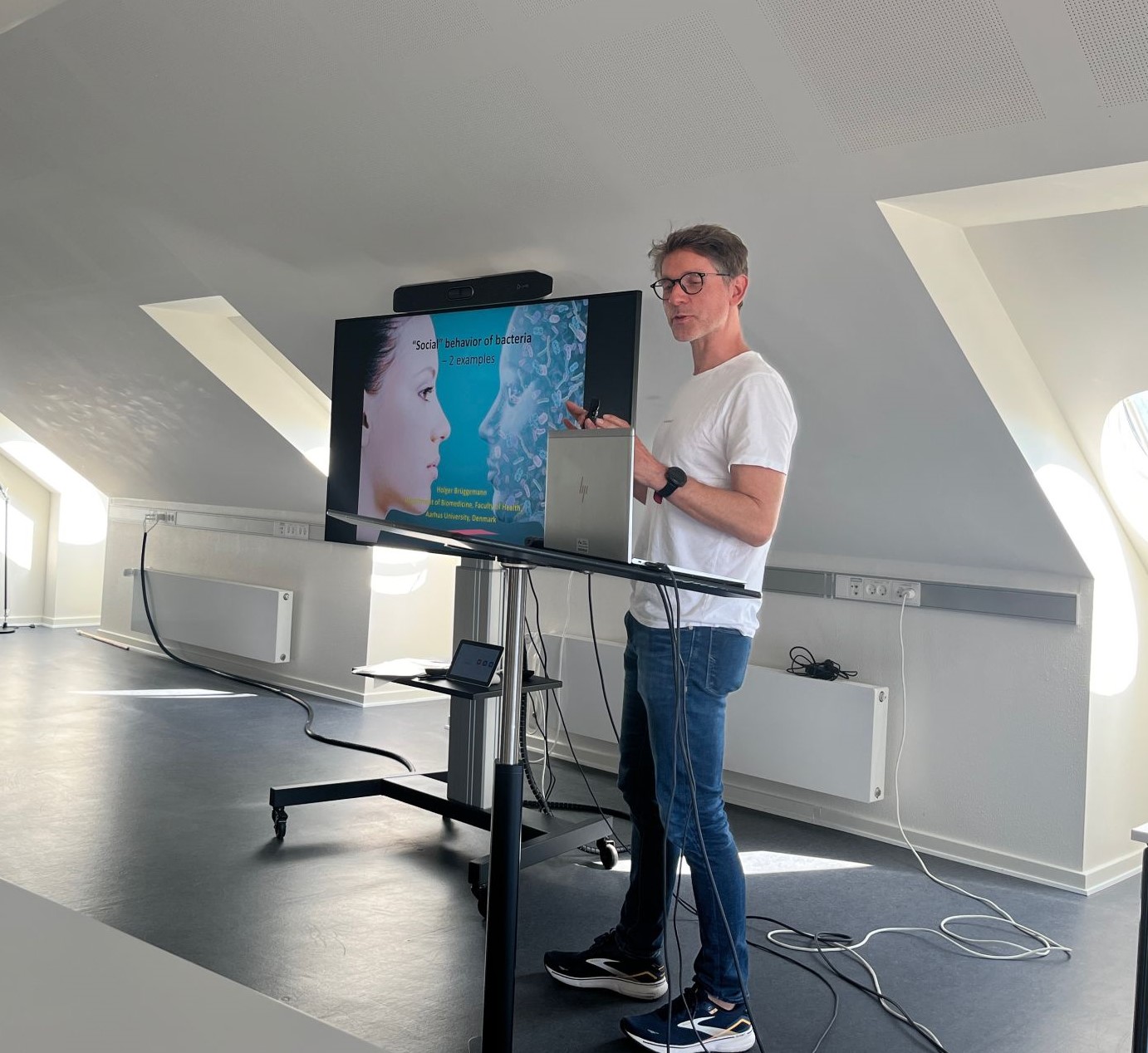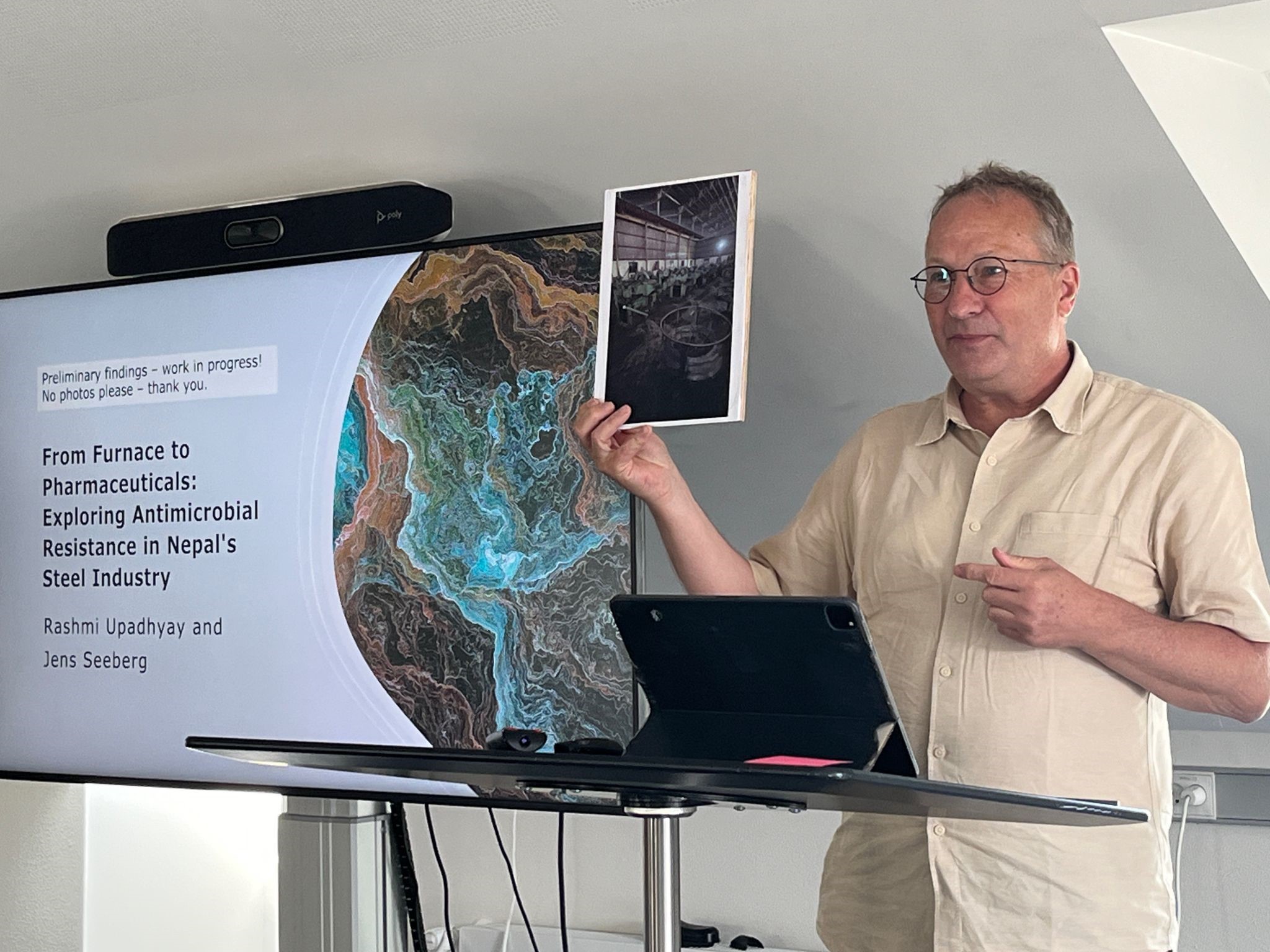Microbial Futures Symposium at AIAS, Aarhus
Summary of the 2 days Symposium May 21-22, 2024 by Eimear McLoughlin who presented a paper at the event.



We have had some wonderful speakers who have offered insights and provocations that have stimulated rich discussion on the biosocial, the senses, embodiment, along with all things microbial.
On day 1 Deputy Director Aarhus Institute of Advanced Studies (AIAS) - Aarhus University Lotte Holm opened the event followed by a short welcome from Jens Seeberg.
Ciara Kierans detailed the ethico-political entangled filtrations of health in Mexico that traverse kidneys, bodies, and ecosystems.
Holger Brüggemann then detailed the social lives of bacteria that triggered a fascinating discussion about science communication and disciplinary translation.
Raffaetà Roberta drew on her recent fieldwork with indigenous microbiologists to elaborate on the shamanic qualities of studying microbes.
Gauri Pathak presented her microbial object - the plastic bottle- through which she described the imaginaries of control that animate media representations of plastic use and pollution.
Saskia then shared the ways in which the biosocial problem of plastic becomes deeply personal through her research with practitioners and clients of alternative fertility treatment clinics and the endocrine disrupting chemicals they seek to manage through plastic detox.
We ended the day with a sensuous description of the gendered toxicities of labour in the air pollution encountered in the home. Serena Saligari powerfully illustrated how environments are not neutral and air pollution pushes agency to the limit!
On day 2 Jamie Lorimer and Joshua Evans commenced with a critical examination of fermentation fetishism and elaborate on the potential of political zymology. Then Mark Nichter provided an incisive analysis of the complexity of antibiotic modes of managing life in India and the US.
Mette Vaarst closed the opening session with a reflection on alliances in organic agriculture and the changing view of AntimicrobialResistance in Danish agriculture.
I then presented what I describe as an olfactory politics of resistance that characterises Danish pig farming, where an abundance of infrastructure contributes to an acceptance of living with resistance.
Jens Seeberg and Rashmi Upadhyay drew on ongoing fieldwork to explore antimicrobial resistance in Nepal’s steel industry.
The final session welcomed two speakers: Salla Sariola shared work-in-progress insights on the intersectional issues in the treatment of sexually transmitted diseases exhibiting AntimicrobialResistance through thinking of the layered and cascading nature of queer vulnerabilities.
Finally, Eben Kirksey zoomed in from Oxford to share his upcoming work on viral symbiosis which brought to an end a fascinating two days of discussion and dialogue.
The Symposium program is available here
Abstract by Eimear Mc Loughlin can be read here
Abstract by Holger Brüggemann can be read here

